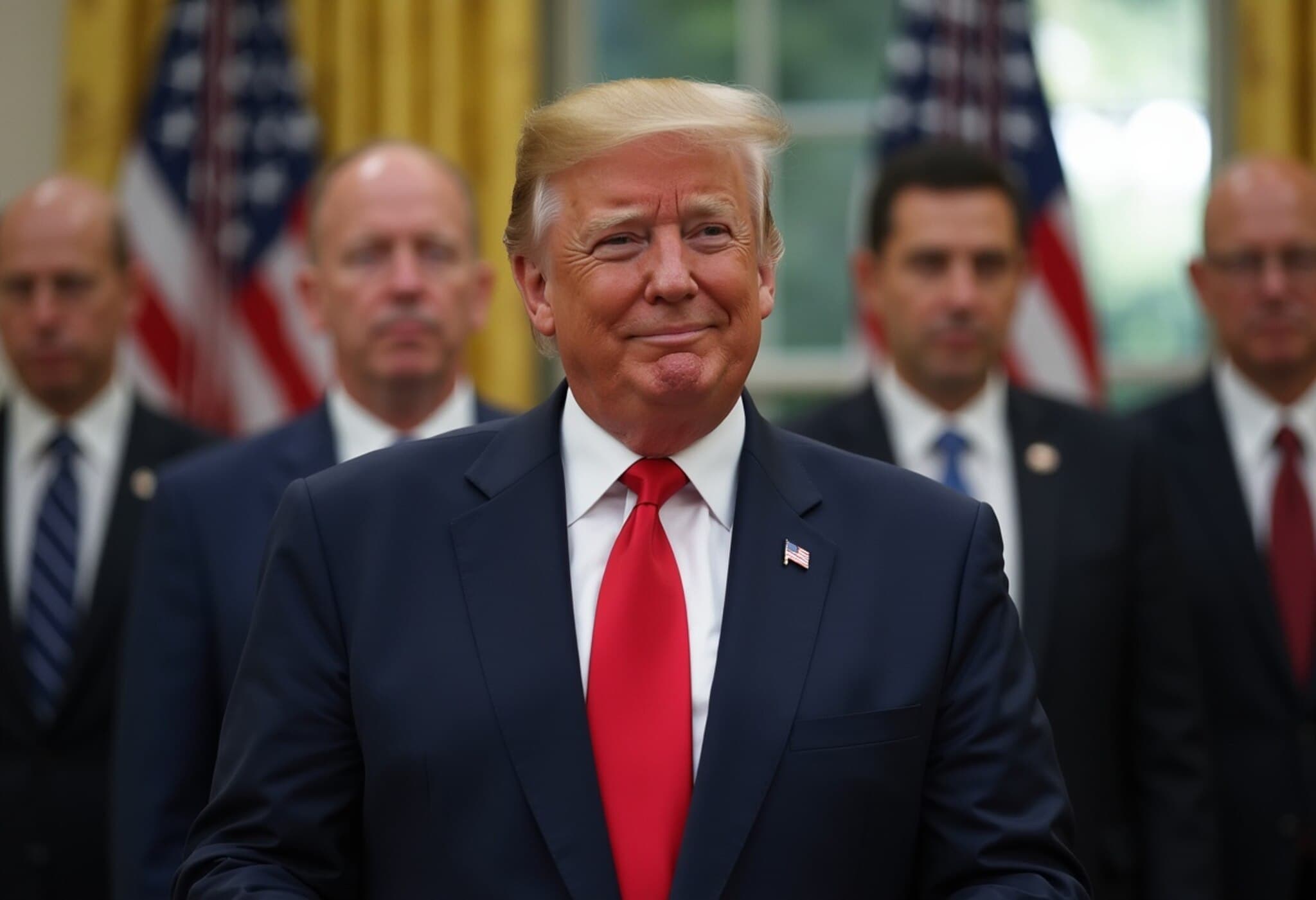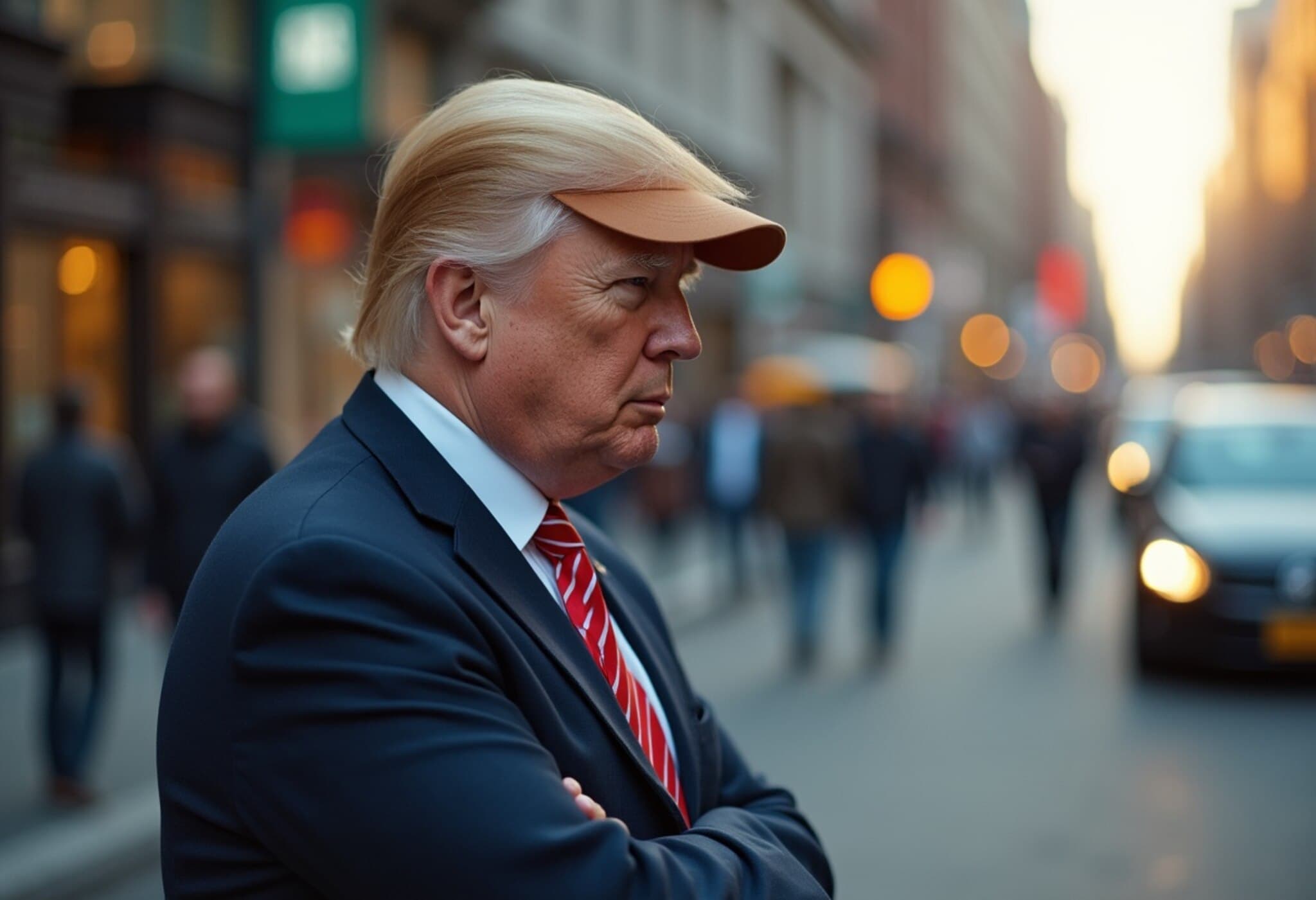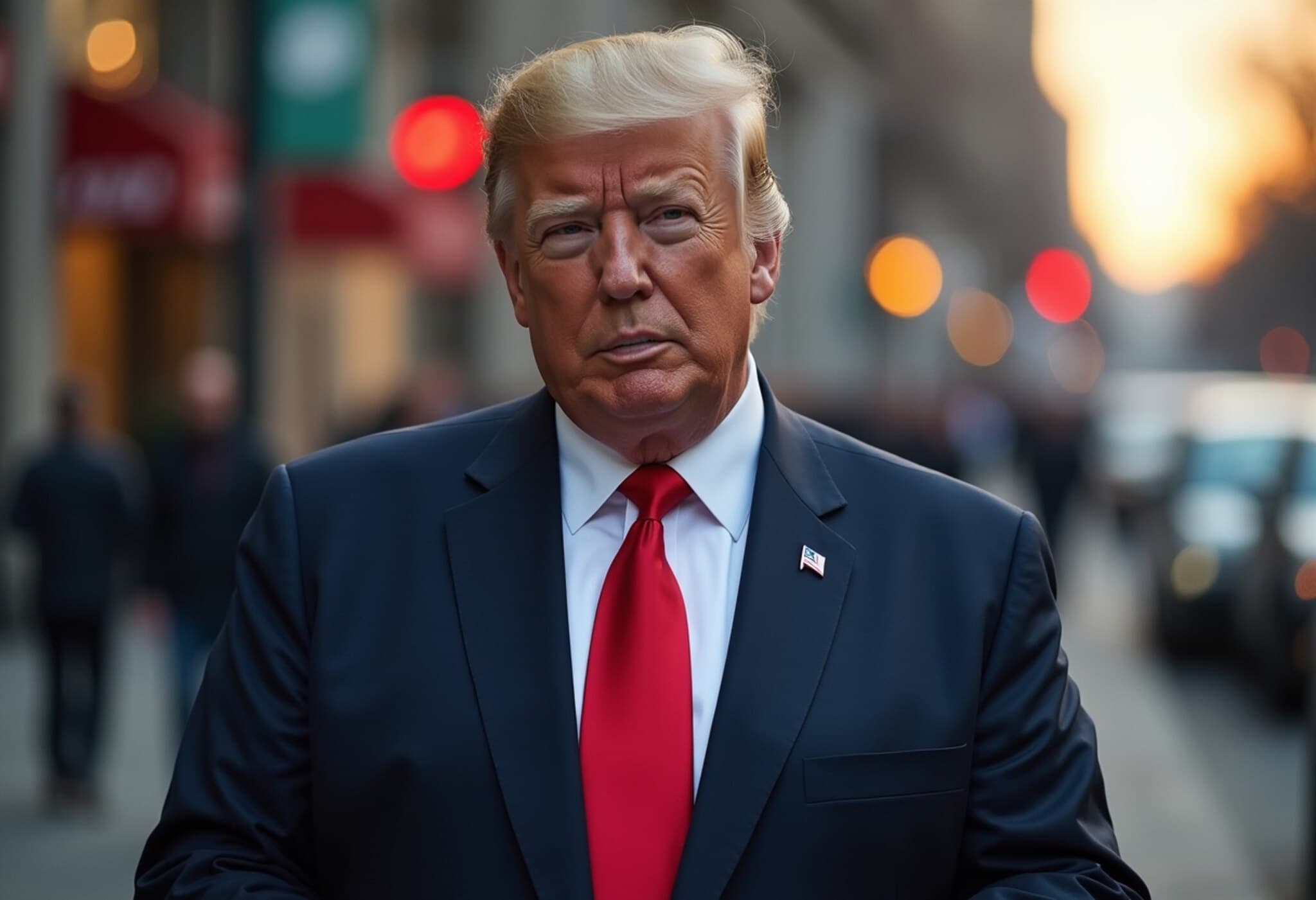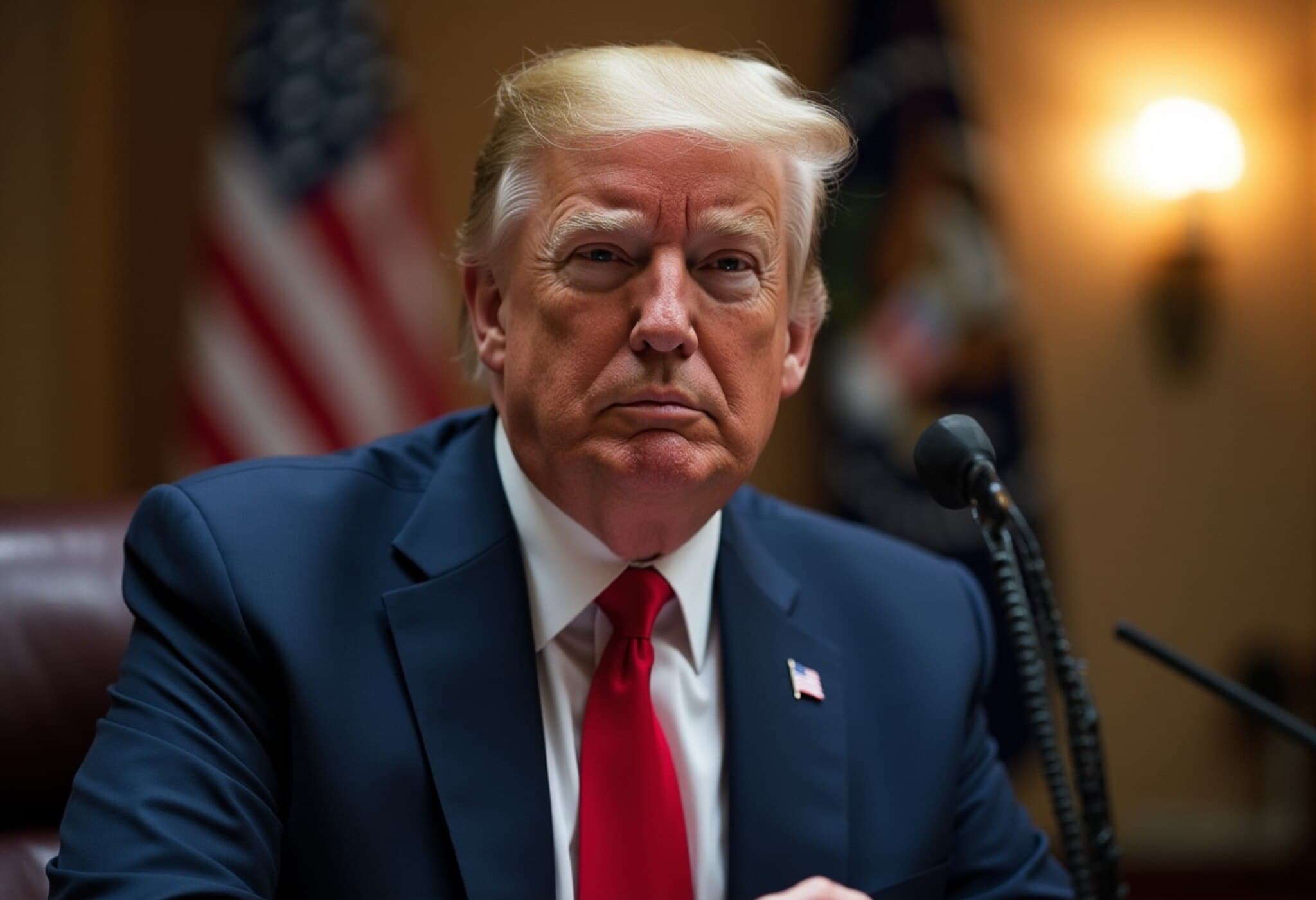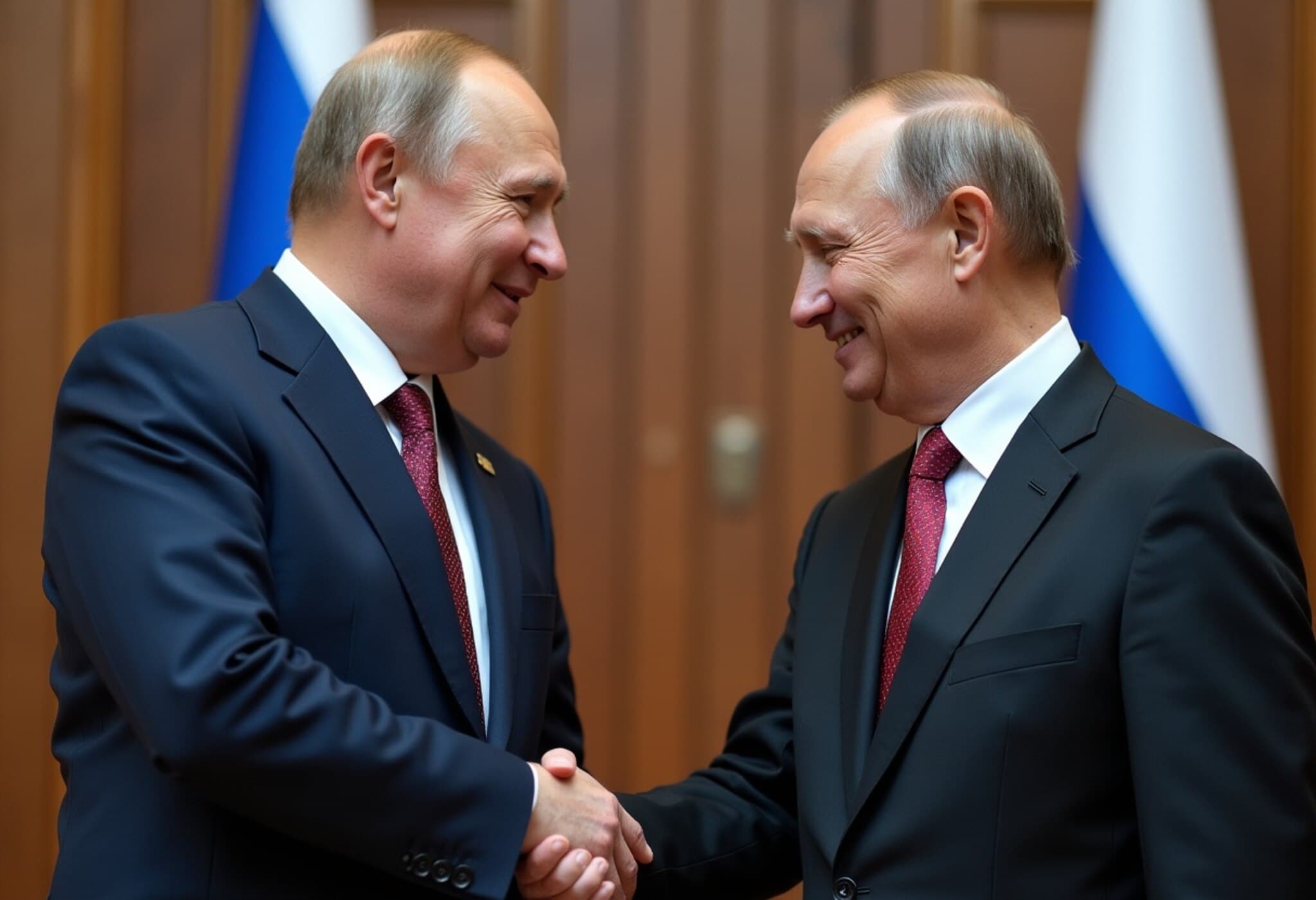Big Tech's Strategic Response to Trump-Era Tariffs
In a striking demonstration of corporate resilience and strategic diplomacy, major American technology firms have recently struck deals and unveiled investment plans aimed at easing the financial strain imposed by the tariffs initiated during the Trump administration. These tariffs, primarily targeting trade with China, have pushed industry giants to innovate not just in products, but also in navigating complex geopolitical landscapes.
Chipmakers Agree to Revenue Sharing Amid Trade Restrictions
In a move that surprised many analysts, U.S. semiconductor leaders Nvidia and AMD reached agreements to remit 15% of their revenue from chip sales in China back to the U.S. government. This arrangement, confirmed by the White House in early August 2025, symbolizes a new kind of economic negotiation—one resembling a tax on exports rather than traditional tariffs.
Though the specific legal framework of these deals remains under refinement, the White House has indicated that similar agreements might be extended to other corporations, signaling a more active and hands-on approach in managing international trade policies affecting tech companies.
Apple's Massive U.S. Investment: A Game-Changing Move
Apple CEO Tim Cook has announced the company’s plan to boost its U.S. investments to a staggering $600 billion over the next four years. This commitment appears to be a calculated strategy to alleviate tariff-related pressures by aligning closely with U.S. economic priorities, thus skirting the brunt of punitive import duties.
Apple, heavily reliant on imported chips and components, had incurred approximately $140 million in tariffs in Q2 2025. In light of escalating tariffs announced earlier this month—specifically a proposed 100% tariff on semiconductor imports, with exemptions only for firms investing domestically—Apple’s aggressive domestic investment seeks to secure an advantageous position.
Economic Experts Weigh In: Tariffs and Tech Industry Impact
Paolo Pescatore, a technology analyst at PP Foresight, comments, "The surge of deal-making reflects the urgent need for relief from tariff burdens. All major tech players have been hit, and few can comfortably absorb the extra costs without impeding profits." The ripple effect from Apple's initiative, he explains, could ignite a domino effect within the industry, encouraging other companies to expand U.S.-based operations.
Conversely, Ray Wang, founder of Constellation Research, describes the revenue-sharing deals with Nvidia and AMD as "bizarre" and raises concerns about the precedent such arrangements set. "If these chips aren’t national security risks, why should the government take a cut? This blurs the line between trade policy and governmental intrusion in corporate profits," Wang noted in an interview with CNBC.
Investor Sentiment and Future Risks
Initial market reactions were cautiously optimistic, welcoming secured access to the lucrative Chinese market. However, investors like Wang and Dan Niles, portfolio manager at Niles Investment Management, urge caution. Niles highlights the unpredictability of U.S. trade policy, emphasizing, "The bigger issue is policy stability — one week policies switch, creating an environment of uncertainty for companies and investors alike."
These developments prompt essential questions about the future of U.S.-China trade relations in technology and whether ’hands-on’ governmental intervention ultimately fosters a stable business climate or breeds unpredictability.
Contextualizing the Tech-Tariff Challenge in U.S. Economic Policy
The situation recalls broader American manufacturing and economic debates — akin to historical incentives offered to companies investing domestically during periods of economic transition. The tech sector’s reliance on China for production and sales complicates these tariffs, revealing the intertwined nature of global supply chains.
Hence, these recent developments underscore a critical tension: the necessity for compliance with domestic policy priorities versus maintaining global competitiveness. The large-scale investment promises by Apple, alongside negotiated revenue shares by chipmakers, offer a glimpse into how companies are seeking equilibrium in this complex geopolitical-economic dance.
Editor’s Note: Navigating Uncharted Waters
- These emerging trade and investment strategies signal not only corporate adaptability but also raise questions about the evolving role of government in commercial decision-making.
- Will the 15% revenue-sharing tax become a blueprint for future trade negotiations in high-tech industries?
- How will the sustained pressure of tariffs affect innovation, supply chains, and consumer prices in the U.S. and globally?
- Most importantly, can companies maintain agility amid shifting policies, or will uncertainty hinder long-term growth?
As trade negotiations and tariff policies continue to evolve, industry watchers, investors, and policymakers alike must keep a close eye on these unprecedented developments in the global technology market.




